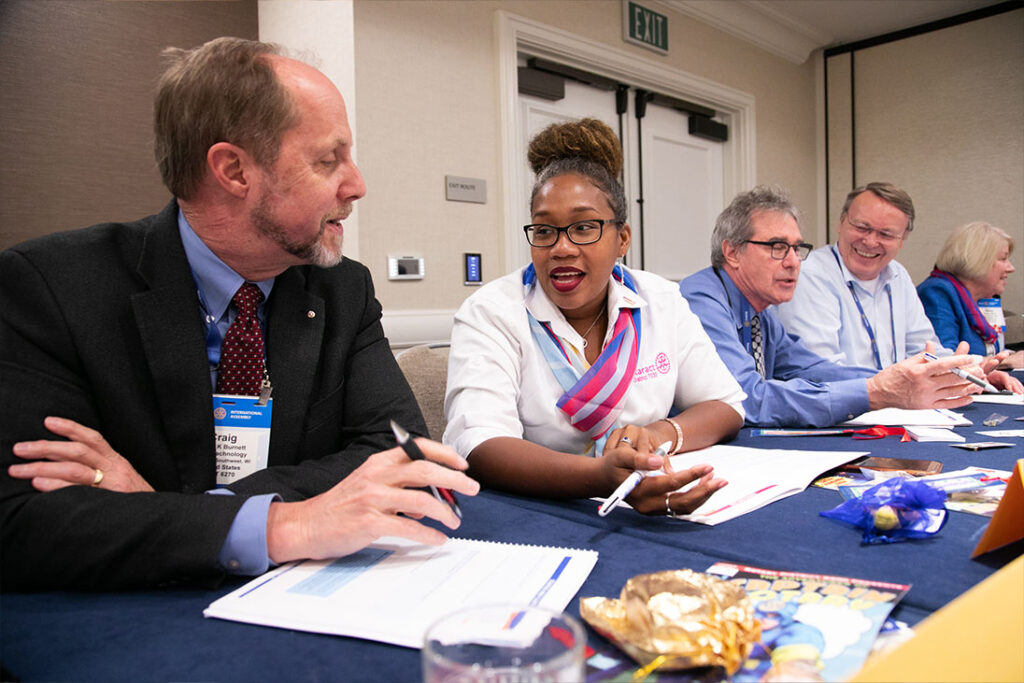Corporate membership allows Rotary clubs to involve any size of business, including non-profit or government entities, into Rotary by offering an alternative membership package to some of its employees.
Corporate Social Responsibility (CSR) is a hot topic currently, applying to organisations of all sizes. It can enhance an organisation’s reputation with its customer base by publicising the good works being done for the local community. It can make all the difference in business relationships and be the differentiator in winning that prime contract.
Listen to this article
Many will see the power of the Rotary membership certificate in the business’s reception, demonstrating how they are a caring organisation prepared to give something back.
Since Rotary in Great Britain & Ireland introduced corporate membership, it has had over 540 registrations, including schools, hotels, care homes, manufacturing, entertainment venues and professional services.


Corporate membership allows Rotary clubs to involve any size of business, including non-profit or government entities, into Rotary by offering an alternative membership package to some of its employees.
Each has nominated members of staff to become Rotarians, reporting back the great works undertaken. Membership cost is paid by the business as Rotary is classed as a tax-deductible charitable organisation.
A precedent has been set with many companies paying for their staff membership so that they can get to know their local communities and customers better.
What is the fundamental difference between a corporate and ordinary member? The organisation pays the membership fee for two members of staff to be Rotarians.
From a Rotary club point of view, the benefits of corporate membership are significant with wider sponsorship, access to helpers, new project ideas, business expertise and greater media profile.
Schools and academies provide an excellent opportunity to show what Rotary has to offer. Youth programmes, international projects and humanitarian initiatives are all visible to students and their families, most of whom are in business and could contribute via CSR.
Find out more about corporate membership with case studies specific to educational institutions.
You often hear Rotarians say they are no longer in business and have no commercial contacts. However, most have children who are working, with many in senior management.
The owner, Managing Director, Human Resources or Sales Director has a vested interest in presenting their organisation as professional, creative, caring and ethical. Being associated with Rotary gives them that advantage.
Corporate membership increases a club’s membership while expanding its network and visibility in the community.
Members gain access to Rotary fellowship and service opportunities with much smaller time commitment.
So next time you meet at a golf day, business expo, school careers event, networking club, youth competition finals, RYLA, or accept a hospitality invite, consider how Rotary could help others to increase their business performance and give something back.


























































